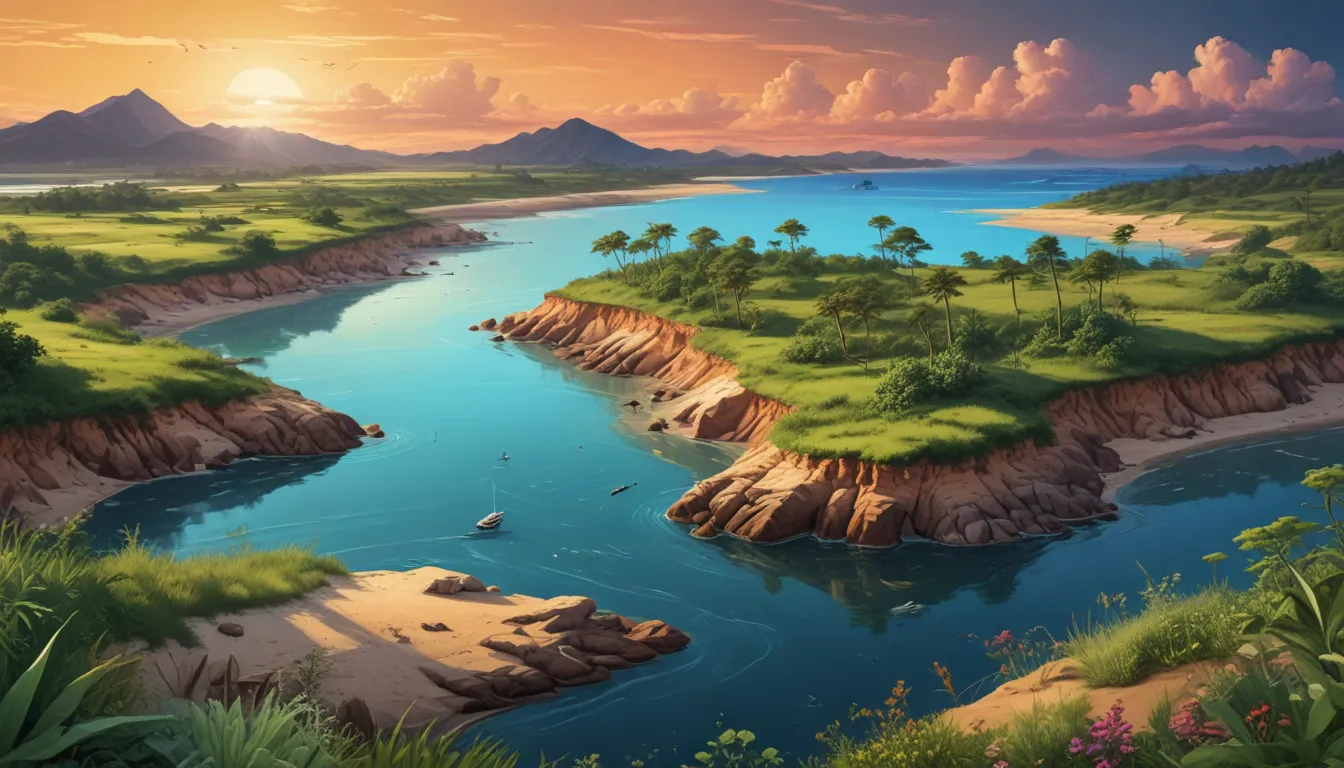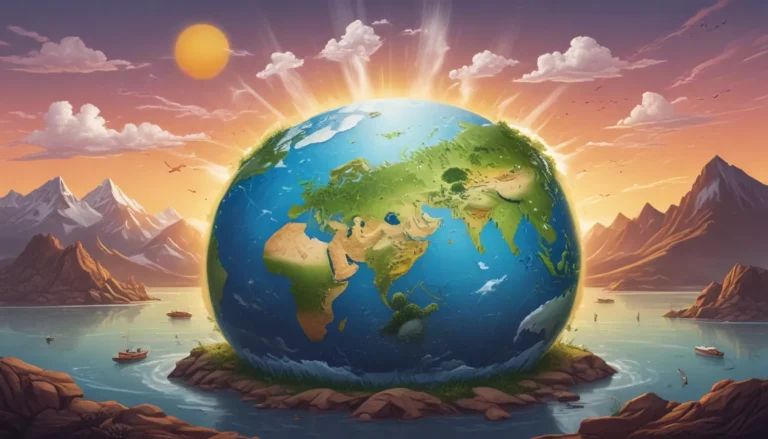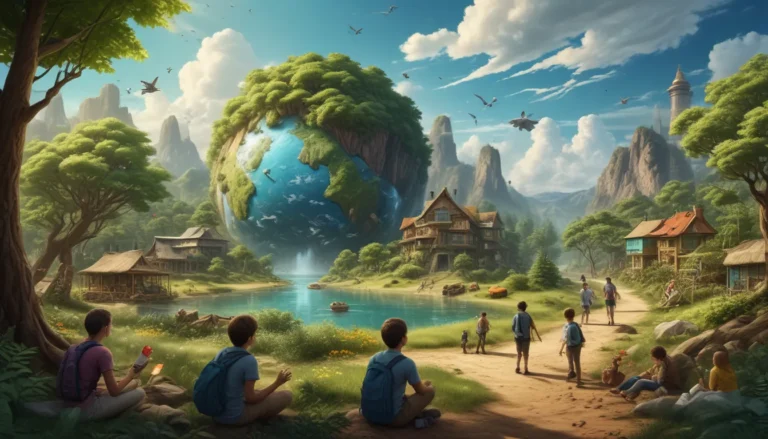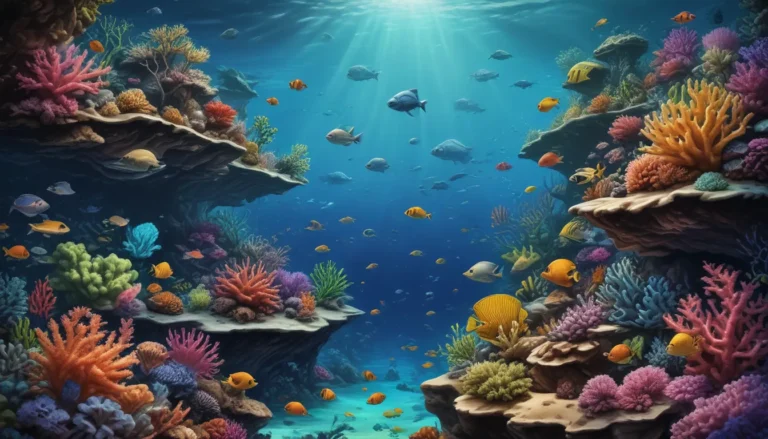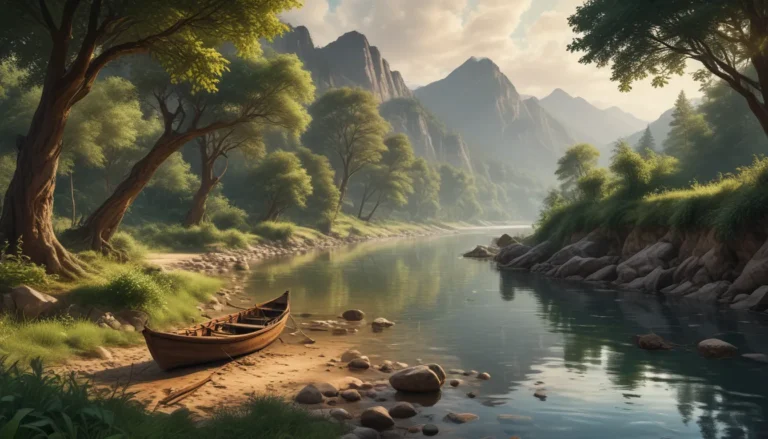A Note About Images: The images used in our articles are for illustration purposes only and may not exactly match the content. They are meant to engage readers, but the text should be relied upon for accurate information.
Estuaries are more than just meeting points between rivers and oceans; they are vibrant ecosystems teeming with life and providing essential services to both nature and human communities. From supporting diverse species to filtering pollutants and protecting coastlines, estuaries play a critical role in our environment. In this article, we will delve into 13 extraordinary facts about estuaries, shedding light on their unique characteristics and the importance of conserving these valuable habitats.
Key Takeaways:
- Estuaries are special ecosystems that serve as vital habitats for plants and animals, contributing to coastal protection and supporting local economies.
- By understanding the significance of estuaries and promoting sustainable practices, we can ensure the preservation of these remarkable natural wonders for future generations.
The Unique Ecosystem of Estuaries
Estuaries are where the freshwater flow of rivers meets the saltwater of the ocean, creating a dynamic mix of environments that support a diverse range of plant and animal species. These rich ecosystems provide essential habitats for various organisms, showcasing the interconnectedness of nature in a fascinating way.
Productivity and Fertility of Estuaries
Due to the influx of nutrients and sediments from rivers, estuaries are highly productive ecosystems that support a rich food web. The abundance of resources in these environments makes them some of the most fertile and biologically diverse habitats on Earth, playing a crucial role in sustaining marine life.
Estuaries as Natural Buffers
One of the key functions of estuaries is their role in protecting coastlines from the impacts of storms and erosion. The vegetation and intricate network of channels within estuaries act as natural buffers, absorbing wave energy and reducing the risk of coastal flooding, highlighting their importance in coastal resilience.
Essential Nursery Grounds in Estuaries
Many species of fish, crustaceans, and shellfish rely on estuaries as critical breeding and nursery grounds. The calm, nutrient-rich waters of estuaries provide ideal conditions for young offspring to grow and thrive before venturing into the open ocean, highlighting the significance of these habitats in marine life cycles.
Support for Migratory Birds
Estuaries serve as essential stopover points for migratory birds during their long journeys, providing resting places and abundant food sources. These habitats play a vital role in supporting the survival of many bird species, showcasing the interconnected nature of estuaries and their ecological importance.
Water Quality Improvement in Estuaries
The marshes and wetlands found in estuaries act as natural filters, removing pollutants and improving water quality. This critical function not only benefits the health of the entire ecosystem but also provides clean water for both wildlife and human populations, underscoring the significance of estuaries in maintaining environmental balance.
Biodiversity in Estuaries
Estuaries support a diverse array of unique and specialized species that have adapted to the fluctuating conditions of these dynamic environments. From marsh grasses to mangroves and from oysters to saltwater crocodiles, estuaries are home to a treasure trove of biodiversity, showcasing the intricate web of life within these habitats.
Economic Importance of Estuaries
Estuaries provide valuable resources for human communities, supporting commercial and recreational fishing industries, tourism, and recreation. The economic benefits derived from estuaries contribute to the overall well-being of coastal regions, highlighting their importance not only in ecological terms but also in socioeconomic aspects.
Conservation Challenges Facing Estuaries
Despite their critical ecological and economic importance, estuaries around the world are facing numerous threats such as pollution, habitat loss, and climate change. These challenges underscore the need for conservation efforts to protect and restore these valuable ecosystems, emphasizing the importance of collective action in safeguarding estuarine environments.
Role in Carbon Sequestration
Estuarine ecosystems play a significant role in carbon sequestration, capturing and storing carbon to mitigate climate change. The plants and sediments within estuaries trap carbon, helping to reduce greenhouse gas concentrations in the atmosphere and highlighting the ecosystem services provided by these habitats in addressing global environmental challenges.
Cultural Significance of Estuaries
Throughout history, estuaries have held cultural and spiritual significance for many indigenous communities, serving as places of gathering, sources of livelihood, and connections to the natural world. The cultural heritage associated with estuaries highlights the deep-rooted relationship between human societies and these unique coastal environments.
Diversity in Estuarine Environments
Estuaries come in various shapes and sizes, ranging from small coastal inlets to wide river mouths. Examples such as the Chesapeake Bay in the United States, the Sundarbans in Bangladesh, and the Great Barrier Reef lagoon in Australia showcase the diversity of estuarine ecosystems worldwide, each with its unique characteristics and ecological importance.
Dynamic Nature of Estuaries
Due to the complex interaction of tides, currents, and sediment deposition, estuaries are constantly changing environments that exhibit a state of flux. This dynamic nature adds to the fascination and uniqueness of estuaries, highlighting their resilience and adaptability in the face of environmental variability.
Conclusion:
Estuaries are remarkable ecosystems that offer a multitude of benefits to both nature and human communities. From supporting diverse species to providing economic opportunities and ecological services, estuaries play a vital role in our environment. By understanding and conserving these extraordinary habitats, we can ensure a sustainable future for generations to come, preserving the beauty and significance of estuarine environments for years to come.
FAQs:
- What is an estuary?
-
An estuary is a partially enclosed coastal body of water where freshwater from rivers mixes with saltwater from the ocean.
-
Why are estuaries important?
-
Estuaries provide vital habitat for a wide range of plant and animal species, act as natural buffers, filter pollutants, and support coastal resilience.
-
Can I engage in recreational activities in estuaries?
-
Estuaries offer various recreational activities such as fishing, boating, birdwatching, and nature walks, providing opportunities to connect with nature and enjoy their beauty.
-
How can we help protect estuaries?
- We can protect estuaries by practicing responsible boating and fishing, avoiding harmful chemicals, reducing pollution and litter, and supporting conservation efforts to preserve these fragile ecosystems.
Explore the wonders of estuaries and discover the intricate world of these dynamic coastal habitats. By appreciating their importance and taking steps to conserve and protect them, we can ensure the preservation of these extraordinary natural wonders for future generations to enjoy. Dive into the world of estuaries and experience the magic of these captivating ecosystems firsthand.
Was this page helpful?
Our commitment to delivering trustworthy and engaging content is reflected in our dedication to providing valuable insights and information. Each fact shared on our site is contributed by individuals like you, ensuring a diverse and authentic perspective on various topics. Our rigorous editorial review process guarantees the accuracy and reliability of the information we share, maintaining the highest standards of quality and credibility. Trust in our commitment to delivering informative and engaging content as you explore and learn with us.
